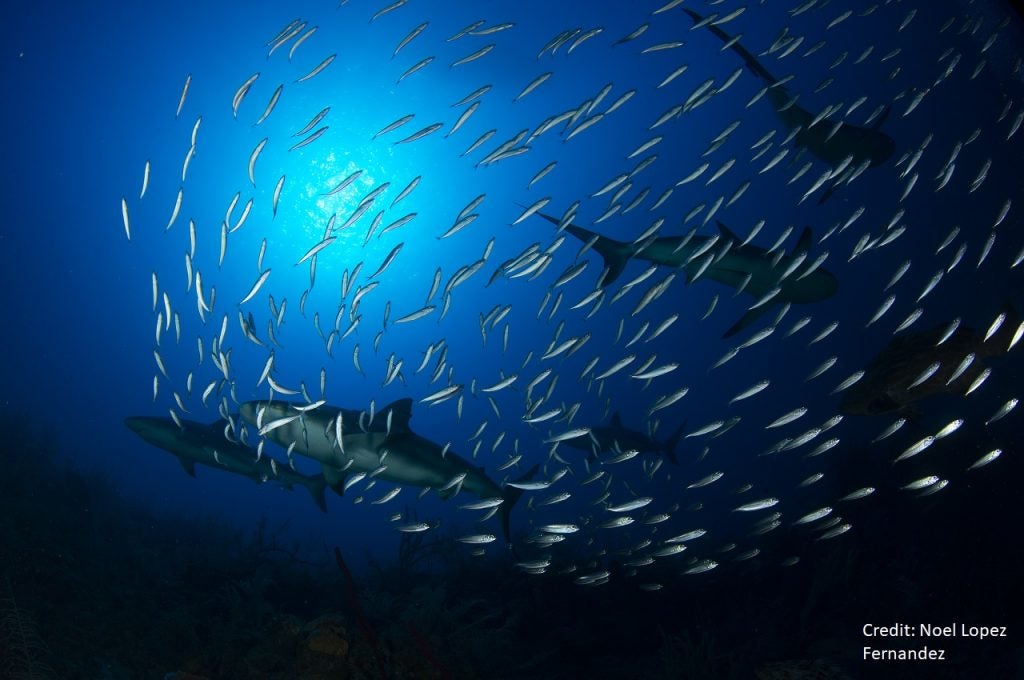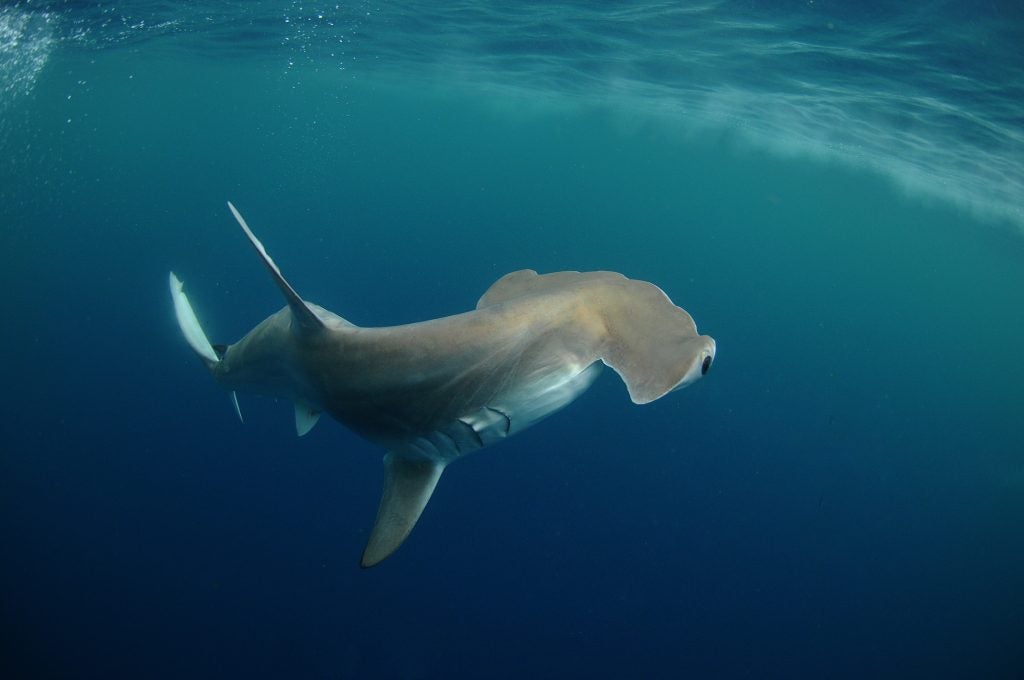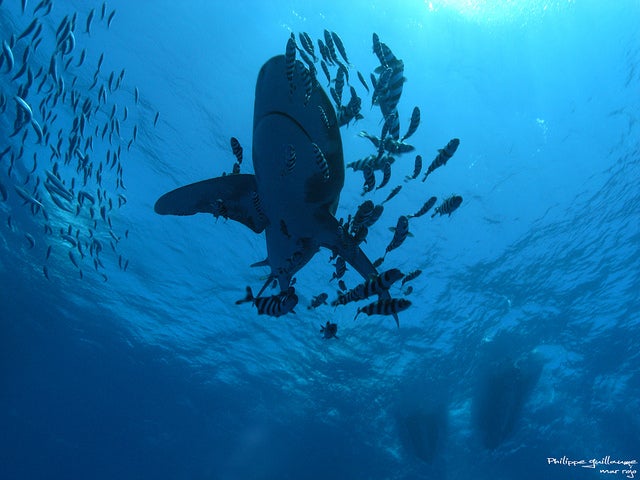Worldwide, there is considerable interest in developing fishery management options that balance social, economic and ecological goals for multispecies fisheries. Ideally, fisheries management should strive not only to produce good yields from single stocks, but also to avoid serial depletion and prevent adverse impacts of fishing on marine ecosystems — a difficult, but achievable task. Read More
EDFish
Selected tag(s): bycatch
Collaborative research sheds light on creating climate-resilient multispecies fisheries
How will climate change affect the bigger fishes in the sea?
By Katie Westfall and Kristin Kleisner
Tunas, sharks, billfishes and swordfish are wide-ranging species that can respond rapidly to environmental changes. Many within this group are top predators and can move across ocean basins and between shallow and deep waters in response to oceanic conditions. For these reasons, some of these species may serve as “climate sentinels,” or animals that can offer important insights into how a changing climate is affecting ocean processes and marine life. Read More
How science and technology can help save sharks
Every year, Shark Week gives us a peek into the world of shark research and the amazing science and technology developing to study these captivating animals. This year, we were amazed by ultrasounds for pregnant hammerhead sharks and measuring a goblin shark’s bite. The latest science and technology can also help fishermen seeking other species to avoid sharks, protecting them from a significant source of injury and death while saving fishermen money.
Globally, shark bycatch represents one of the greatest threats – maybe the greatest threat, — to shark populations. Worldwide, sharks caught as bycatch can make up nearly half of the total reported catch, and that’s not counting the large amount of catch that goes unreported. Often, fishermen want to catch more valuable species like swordfish and tuna using pelagic longlines, one of the most prevalent fishing gears on the high seas, and hate accidentally catching sharks instead. So how can science and technology help solve this problem? Read More
Protecting imperiled ocean travelers
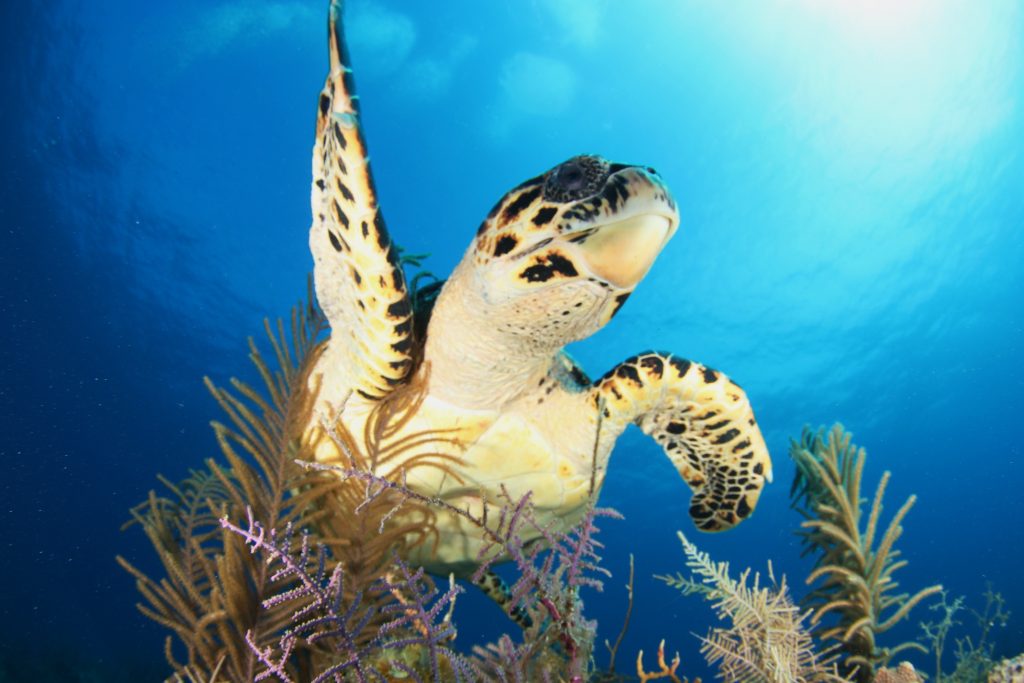
Photo: Noel Lopez-Fernandez
By: Katie Westfall & Melissa Mahoney
Across the globe, populations of many highly migratory species of fish, turtles and marine mammals have hit dangerously low levels. For example, Western Pacific leatherbacks have declined more than 80 percent, and their Eastern Pacific counterparts have declined by more than 97 percent. Many of these species play vital roles in maintaining balanced ocean ecosystems full of diversity and life. As we work to reverse these declines, environmentalists have to ensure that everything we do has the greatest positive impact. This means that we’ll need smart management at home and solutions that protect highly migratory species wherever they roam.
New research suggests that well-intentioned U.S. regulations designed to help species like sharks and sea turtles may actually create a net harm to imperiled sea life.
This unintentional negative dynamic can occur when a country, like the United States, unilaterally adopts a regulation to protect an imperiled species such as sea turtles or sharks caught as bycatch. If the regulation leads to decreased fishing domestically and shifts fishing internationally to countries where bycatch rates are higher, the net result can be a higher number of bycatch deaths for the very species the regulation intended to protect. This phenomenon has been called the “transfer effect.” Read More
Saving sharks by reducing bycatch
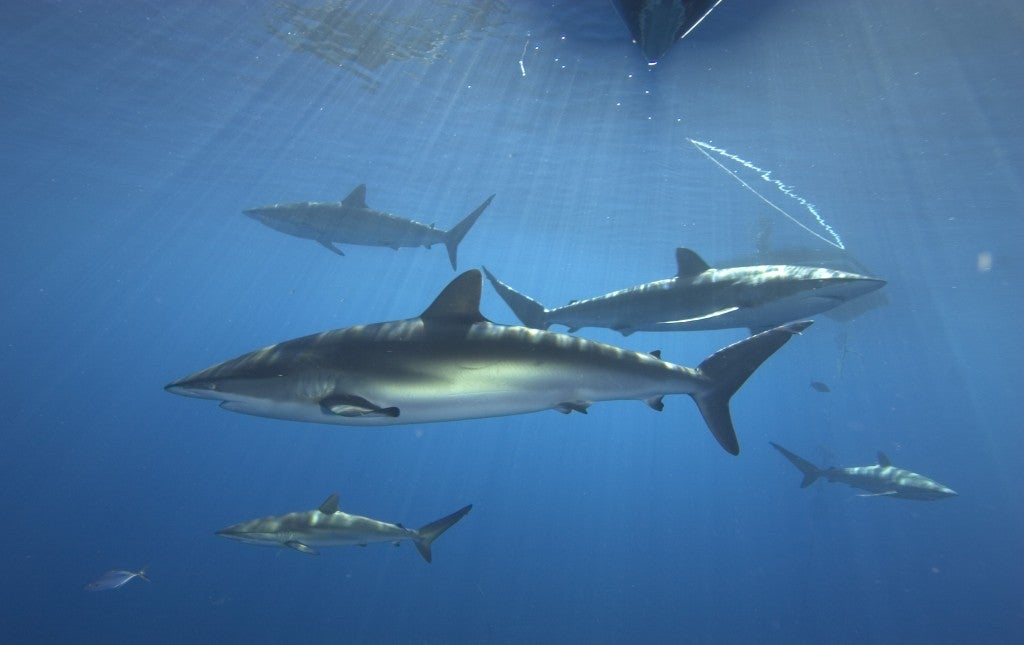
Caribbean Reef Sharks. Photo: Noel Lopez-Fernandez
This week, sharks make their annual summer migration to the Discovery Channel for Shark Week. It’s a great time to learn about some of the advances in shark research happening every day. In just the time since Shark Week 2015, we learned new things about where we can find the world’s largest concentration of sharks, how great white sharks migrate, how sharks use their photon conductive noses to hunt fish, and how catsharks grow brighter the deeper they swim. We’re also discovering new species to add to the growing list of hundreds of different sharks every couple of weeks.
Yet, with all these new findings, we still have a lot to learn about these keystones to our ocean ecosystems. Off the East Coast and in the Gulf of Mexico, a large number of shark species swim in and out of U.S. waters. The National Marine Fisheries Service (NMFS) manages these species of sharks—including many known to be highly susceptible to overexploitation such as great whites, whale sharks, and bigeye threshers. Read More
Empowered fishermen play an important role in reducing seafood waste
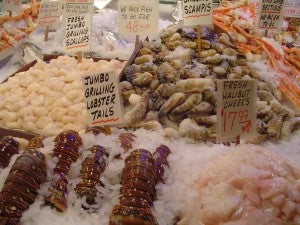
Seafood for sale at the Pike Place Market in Seattle, WA. Photo: Kate Culzoni
Squandering ocean fish—an essential living resource—unnecessarily harms not only wild creatures, but also the billions of people around the world dependent upon fish for their food and livelihoods.
A recent report by the Johns Hopkins Center for a Livable Future finds that between 2009 and 2013, billions of pounds of seafood is wasted every year in the United States—that’s as much as 47% of all edible seafood going to waste. The waste occurs throughout the seafood supply chain, but also in wild fish discarded at sea, sometimes called “bycatch” or “discards.” Fortunately, there are good answers to the bycatch part of this challenge.
Proven solutions exist to reduce wasted fish in the form of bycatch and discards. When fishermen are empowered with sustainable management, they are able to focus on gear and harvesting innovations that target only the fish they want to catch.
In fact, catch shares, a proven tool that aligns environmental and economic incentives for fishermen, save enough fish from being discarded to feed 17 million Americans their seafood for an entire year. Read More










